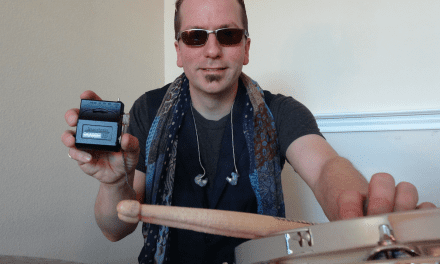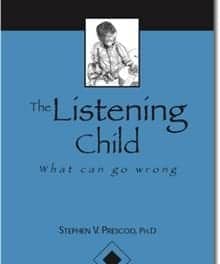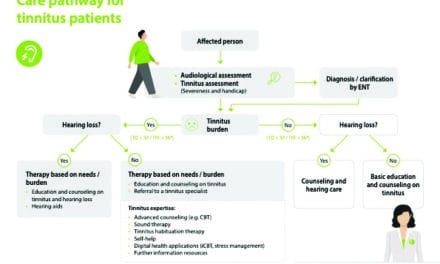Audion Therapeutics, a clinical-stage biopharmaceutical company advancing therapies to treat hearing disorders announced the publication of the results from a Phase I/IIa trial of an intratympanically administered gamma-secretase inhibitor (LY3056480) as a drug treatment for acquired sensorineural hearing loss (ISRCTN number 59733689).
The study was conducted by the REGAIN consortium; an international consortium of seven partners with a unique combination of expertise in hearing loss biology, drug development, and clinical expertise in hearing disorders, the company says.
The data were published in Nature Communications in a paper entitled “A phase I/IIa safety and efficacy trial of intratympanic gamma-secretase inhibitor as a regenerative drug treatment for sensorineural hearing loss” authored by Schilder et al.
Trialing the Gamma-Secretase Inhibitor
Hearing loss is the most common sensory disorder in humans and an area of significant and growing unmet clinical need. Previous work by Audion Therapeutics co-founder Albert Edge, PhD (Professor of Otolaryngology–Head and Neck Surgery, Harvard Medical School) and others has shown that pharmacological inhibition of Notch signaling with a gamma secretase inhibitor results in partial recovery of hearing in animal models of sensorineural hearing loss. LY3056480 was identified as a drug candidate with an optimal profile and following successful preclinical development a Phase I/IIa clinical trial was designed and performed. The paper reports on the results of this trial.
The Phase I trial including 15 patients in the United Kingdom (Multiple Ascending Dose, three administrations, one week apart) confirmed the tolerability and safety of the highest dose of 250 micrograms.
“We are very pleased with the results of this clinical trial conducted as part of the REGAIN consortium, as the study has confirmed the safety and tolerability of intratympanic administration of LY3056480, but also that it shows signs of clinically relevant responses on multiple outcome measures in a subset of patients,” says Rolf Jan Rutten, chief executive officer of Audion Therapeutics. “More specifically, the improvements in the ability to understand speech in a noisy environment that we see in some patients are encouraging as this addresses the primary complaint of many people suffering from hearing loss. Importantly, these improvements continued to be observed during the optional 12 month follow-up period. We believe that this data set is promising and forms an important building block for further development of this experimental regenerative treatment. We look forward to continue the development of LY3056480 with an optimized clinical trial design that may lead to a higher number of patients responding to the treatment.”
In the phase IIa trial the pre-defined primary endpoint (≥10 dB change in the average pure-tone air conduction threshold across 2, 4 and 8 kHz at 12 weeks) was not met. However, post-hoc analysis, as outlined in the supplementary information section of the paper, shows positive changes in predefined secondary pure-tone audiometry and speech perception in noise measures in 20-25% of patients.
Further reading: France Approves Gene Therapy Clinical Trial to Treat Hearing Loss in Children
“We are very pleased with this publication, as the project has generated important learnings about the design and delivery of early phase trials of novel hearing approaches,” says Professor Anne GM Schilder, coordinating investigator of the REGAIN consortium. “The preclinical work by Audion Therapeutics was solid and promising so it was a privilege for our Consortium to take this to clinic. It took time to analyse and interpret the trial results, because the tests we have available nowadays are developed to study progression of hearing loss instead of reversion. We did not see improvements in hearing across all patients, but we feel that the positive changes in some patients call for further work with this approach. The trial also highlights the demand among patients to participate in hearing loss research. Our team was contacted by more than 5,000 patients with hearing loss requesting to take part, illustrating the huge unmet clinical need for better hearing treatments.”





